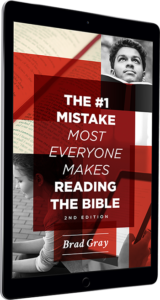Episode 063 – Bread of Life Pt 7: Firstfruits of the Resurrection
Key Passage(s): John 12:23-24; 1 Corinthians 15:20-23; 1 Peter 1:18-19
In this episode, we’re celebrating the Resurrection, and we’re going all out! God raised Jesus from the dead on a Sunday. But it wasn’t just any Sunday. It was a Sunday where people were celebrating a significant festival in conjunction with Passover and Unleavened Bread. And the implications of why Jesus rose on this Sunday will astound you, as there is another whole other level of meaning that God was communicating through the resurrection and its timing. Buckle up, Friends, because what God did will leave you speechless, grateful, and exceedingly hopeful!
Discussion Questions
- What was your biggest takeaway from the teaching?
- How did this teaching bring more significance and understanding to the resurrection for you?
- In the midst of the resurrection plan, there was a Sabbath. Aside from the Sabbath’s connection to the Festival of First Fruits, what significance can we draw from the fact there was a Sabbath in the middle of the story?
- God raised Jesus through the power of the Holy Spirit. We learned that those who are in Christ Jesus share the same fate (i.e. will be resurrected to new life and have access to the same Spirit who raised him from the dead now). How does this change how you live now?
- Where do you need the power of the resurrection in your life?
- Now knowing the intricacy and timing of God’s plan for the events surrounding Jesus’s death and resurrection, how does this change your perspective on God’s ability to guide the events of your life?
- How can you begin living out the truths of this teaching this week?
For Further Study
- Jesus and the Jewish Festivals by Gary M. Burg
- Sitting at the Feet of Rabbi Jesus by Ann Spangler and Lois Tverberg – Chapters 8 and 9 deal with the content of this episode.
As an Amazon Associate, we earn from qualifying purchases (at no extra charge to you).





Thank you for all of the time, thought, and depth you place into these teachings! Again, this series adds another layer of depth to what Jesus did and the love God has for us! Amazing!!!
I bless God for that, Andrea. Thank you!
The why do churches not do Passover if it is this significant?
Too Jewish and they murdered Jesus?????????
But our Jesus is Jewish and He did it and if we’re gonna “be like Jesus” then????????
As my friend Lois Tverberg says, “Our goal is not to become more Jewish, but to become more like Jesus.” But I do think it would add significant meaning to Easter to experience a Seder Meal where the connections between Passover and Jesus are made. I had the chance to be part of one this season, and it was fantastic!
I was watching this and literally yelled out in excitement at what God has done for us. Thank you Brad for allowing God to use you in such a mighty way. Can’t wait for next week and maybe I should not sit by an open window!
Haha! That’s awesome 🙂
Wow! Gods word is so accurate.
It is indeed.
This is a very fascinating / interesting teacher for us today 2000 years after it happened but what would have been the significance of this divine timeline on the people in Jerusalem at the time this took place? Would people (maybe religious leaders and disciples) have seen the significance of this and it would have been more facts to point them toward Jesus being who he said he was?
Hey Doug, great question. Yes, I think it would’ve been huge for Jesus’s disciples (especially), and I address why in next week’s episode. So stay tuned.
Brad, I am absolutely astounded by the teaching I’ve learned in this series! I’ve been a Christian for 40 years and have never heard these scriptures taught this in depth. I’m so very thankful for your ministry. I recommend the teaching series to everyone I know! I am blessed beyond measure and look forward to your teaching each week. Thank you!!!
So great to hear, Sherry!
There is a problem with placing Jesus’ crucifixion on Nisan 15. Nisan 15, the first day of Unleavened Bread, is a special sabbath on which work is forbidden (Lev 23:6-7). The Jewish urge to bury the dead before the sabbath would apply to the Nisan 15 special sabbath. I find the Nisan 14 crucifixion to be more coherent.
Hi Randy, thank you for your thoughts. There are pros and cons to placing the crucifixion on Nisan 14 or Nisan 15. As you’re likely aware, the synoptic gospels all put Jesus’s last supper meal as a Seder, which means it’s on Nisan 15 as the meal was never consumed on the 14th. If it is in fact a Seder meal being celebrated with the rest of the people, Nisan 15 fits a little bit better. But as I said, there are pros and cons to both. Thanks!
Was there a time difference between the family lamb sacrifice and the sacrifice of lambs at the Temple?
Once the Temple was established, all Passover sacrifices had to be done at the Temple (and no longer in the home). Due to so many sacrifices that needed to be done at the Temple, they started “twightlight” hours a bit earlier.